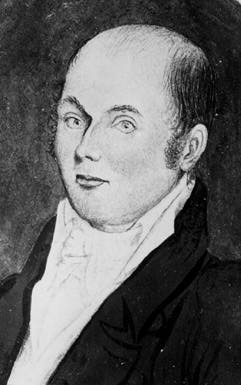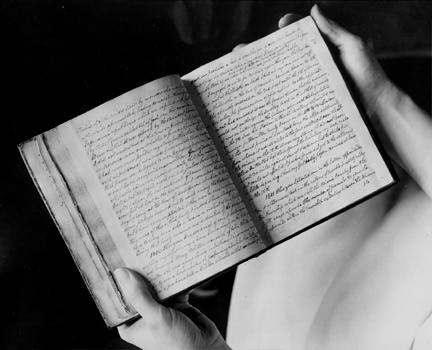A Precious Record:
The memoirs of Benjamin Van Cleve
 By Benjamin Kline
By Benjamin KlinePublished April 1, 1996 Benjamin Van Cleve had an interesting life. He was a survivor of St. Clair's defeat. He surveyed the wilderness that later became his home. He helped supply the army and carried military dispatches . He worked as a clerk in the territorial lesiglature. He was present on the day Dayton was born. He helped promote a law that enabled settlers to hang onto their land after the original buyers left a tangle of disputed title and bad debt.
And in 1820, about a year before he died, Van Cleve wrote it all down in a "memoir" - for his family, not to impress anybody. Van Cleve's ideas about himself are a concise statement of the ethic that created today's Dayton: "I have always found it necessary to form rules for myconduct & resolutions to adhere strictly to the rules. My main object has everbeen to be useful in the sphere in which my Creator has been pleased to place me. I cannot be useful unless I am active - I ought therefore never to procrastinate anything until tomorrow that can be done today - & a small private sacrifice should never be an obstacle, where much public good can be rendered." Today his big walnut cupboard and modest writing desk are on display at the Old Court House museum. His small sheepskin-bound book, the handwriting clear and beautiful, is one of the most precious objects in the vault at the Dayton-Montgomery County Public Library.
It is precious because it is a record. The late Rev. Charles Lyon Seasholes, pastor of Dayton First Baptist Churchfor 30 years, spoke in 1974 about the importance of such pieces of our past:
"The reason this is of interest (he spoke of the earliest Ohio Baptists from Scotch Plains, N.J.) is that the experience of those people, after they had made this step forward to come into Dayton, was in a record," Seasholes said. "It was the story of the beginning. Know that when we come to this whole matter of the keeping of the records, the thing that is most important is what has been happening in the lives of people.
 Benjamin Van Cleve's memoirs are part of the collection of the Dayton-Montgomery County Public Library. |
"Lean and sallow, curious, inquisitive, independent," said another. They displayed "a careless haughtiness of manner, without any affectation, or consequential airs; and a quick perception of the ridiculous... Social comforts counted less than friendship or neighborliness. Equality was not a theory or a creed; it was merely a natural circumstance. "
Back home in New Jersey, Van Cleve remembered hiding as a child while raiding British troops burned neighbors' farms and slaughtered his father's livestock, "except for one heiffer and a sow, her back broken by a saber, who lived." Other Dayton settlers had fought in that war, or their fathers had. Freedom was not an abstraction to them.
In one great battle in 1780 between New Jersey militia and elite British and German troops, a fight joined by 20-year-old Jonathan Dayton, the "Jersey Blues " crumpled the pages of Isaac Watts hymnals when they ran out of musket wadding.
"Give 'em more Watts, boys!" yelled their fighting pastor, the Rev. James Caldwell. All the King's soldiers retreated to Staten Island.
The Dayton Township settlement had no organized church until 1799, althoughpeople said you could hear William Hamer's voice "for three miles" when he ledprayers in his cabin. But they must have had the glorious hymns of Isaac Watts(1674-1748) - from the smoky roar of a New Jersey battlefield to the misty, eternal stillness of a wilderness Ohio valley.
We are not told if the people sang as they cut timber, built shelters, prepared food, planted crops. We imagine some did. One of the most popular of Watts' hymns captures the feelings of this important day and the memories - such as those of Benjamin Van Cleve - that we cherish:
"Our God, our help inages past,
Our hope for years to come,
Our shelter from the stormy blast
and our eternal home."